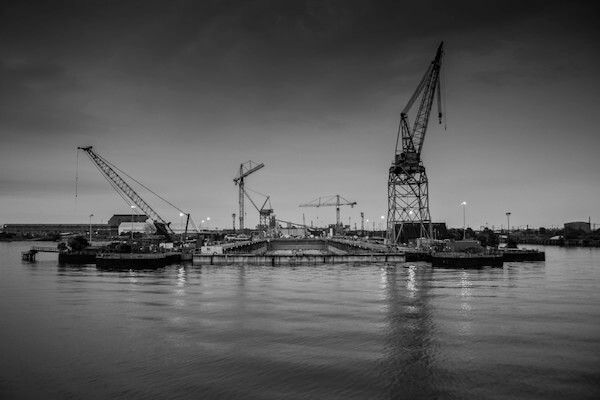Tag Archive for: Mexico deep water oil auction
For the three titans of Latin American oil — Pemex, PDVSA and Petrobras — last week’s OPEC-driven price rally won’t be enough to halt a slow descent from the ranks of international crude heavyweights.
Even as news of the cartel’s 1.2 million-barrel-a-day output cut spurred the steepest three-day oil gain in 15 months, the biggest Latin American producers remain hobbled by financial, political, technical and structural problems. Mexico and Brazil have been turning to outside investors to help boost output, with Mexico on Monday offering up stakes for the first time to drill in its deep waters.
Oil prices are an especially pressing issue for the behemoths responsible for large chunks of their local and national economies, all while supplying one of every 13 barrels of crude produced around the globe every day. Unlike North American explorers who were free to fire workers and abandon costly, high-risk projects as crude collapsed, the Latin companies operate under close bureaucratic controls that hinder their ability to respond to market forces, said Thomas McNulty of Navigant Consulting Inc.
“Higher prices are always a good thing but these are state-owned quasi-companies that have tremendous social obligations to their countries and little freedom to take rational cost-cutting steps,” said McNulty, director of Navigant’s valuations and financial risk management practice. “U.S. companies have to pay taxes, sure, but they don’t have to build schools.”
Petroleo Brasileiro SA said it isn’t changing its business plan in response to OPEC’s production agreement. Mexico’s Energy Ministry said it won’t change its auction plans because of OPEC. Petroleos de Venezuela SA, as the Venezuelan state-oil company is formally known, didn’t respond to requests for comment.
Brent Surge
Brent crude, the international benchmark, surged as much as 15 percent in the three trading sessions following a Nov. 30 meeting at which the Organization of Petroleum Exporting Countries agreed to individual production cuts for the first time in eight years. The three-day rally was the largest since August 2015. Brent dipped to a 12-year low around $27 a barrel as recently as January; since then, the price has doubled to more than $54.
“Higher prices are positive for these companies to varying degrees,” said Lucas Aristizabal, a senior director at credit-rating company Fitch Inc. For Petroleos Mexicanos and PDVSA, the benefits are diminished by staggering debt loads that eat up cash that could otherwise go toward drilling to sustain production and replenish spent reserves, he said.
“Pemex needs much higher prices than this under the current taxation scheme to become cash-flow neutral while investing enough to replenish reserves,” Aristizabal said.
Mexican Oil
Once the world’s third-largest oil producer, Mexico now pumps less than the U.S. state of Texas, thanks to dwindling output from the once-gargantuan Cantarell field and lack of investment in new drilling technology. Aristizabal estimated the Mexican company, whose nearly $100 billion in debt is more than twice that of Exxon Mobil Corp., needs crude to fetch $80 a barrel to $100 a barrel to escape it downward spiral.
Mexico’s deep-water oil auction is designed to attract international oil giants to develop offshore production. It’s a crucial test of foreign investment, with Mexican oil output forecast to fall below 2 million barrels a day next year, the lowest level since 1980.
Pemex CEO Jose Antonio Gonzalez Anaya praised the OPEC agreement and price rise as “a breath of fresh air.
“It’s a good development for the energy market and for Pemex,” he said in a Dec. 1 interview on Bloomberg Television.
PDVSA Payments
PDVSA, facing $6.4 billion in debts coming due next year, won’t get much relief from its liquidity crisis, despite the nascent crude rally, Aristizabal said. Company Chairman Eulogio Del Pino said the cut may push oil prices to $70 in six months. Added cash is important as the producer uses a 30-day grace period to pay interest due on a 2035 bond. Venezuelan President Nicolas Maduro has blamed the U.S. Treasury and Citigroup Inc. for the delayed payment.
Venezuela is one of only two cartel members in the Western Hemisphere, and PDVSA will be required to cut some output. That means abandoning some of the potential upside from the price increase, Aristizabal said.
Petrobras, which has been enmeshed in Brazil’s biggest corruption scandal, is in a better position to take advantage of rising prices than it was in 2011 when crude surged past $100 a barrel. The previous Brazilian administration of Dilma Rousseff pressured the state-controlled company to keep domestic gasoline and diesel prices below international levels in an effort to contain inflation, costing an estimated $35 billion in fuel subsidies in the middle of a commodities boom.
Fuel Sales
The Rio de Janeiro-based producer has been selling fuel at a premium for the past two years, partially recovering the losses from import subsidies. In October, the company set a policy of monthly revisions to guarantee prices remain above import costs. Petrobras reiterated its commitment to keep fuel prices above international parity in an e-mailed response to questions.
Rising prices will also guarantee the viability of deep-water fields that are estimated to hold billions of barrels of oil. Chief Executive Officer Pedro Parente has said the company’s break-even cost is around $40 a barrel. Petrobras has been in talks with potential bidders, including Total SA, for joint ventures to get oil from the so-called pre-salt areas offshore.
Brazil’s energy ministry has said it has no authority to set production limits for Petrobras and other companies producing in Latin America’s largest economy, offering the potential for it to capitalize with more output as OPEC members scale back.

Scroll to top

 Fundamental factors to strengthen Pemex12 August, 2019
Fundamental factors to strengthen Pemex12 August, 2019 Offshore Project Development: The Road to First Oil26 July, 2019
Offshore Project Development: The Road to First Oil26 July, 2019
